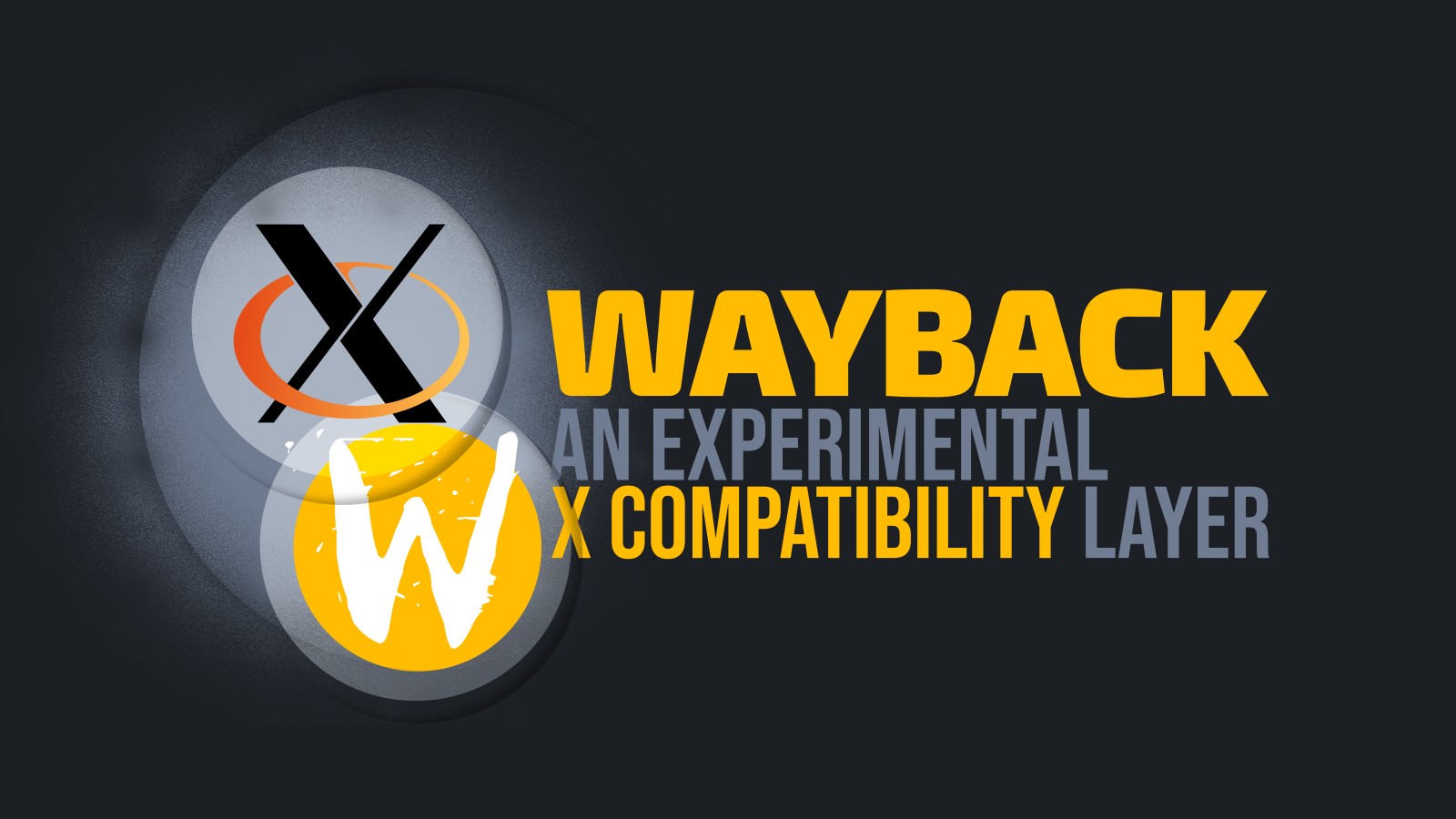Ok I checked here and fortunately do not have this problem.Seems to drop in easy!
Xorg.0.log has a flood of this though:
I assume you installed server and drivers from xlibre repo?
Which graphics driver do you have (I have nvidia)?
Ok I checked here and fortunately do not have this problem.Seems to drop in easy!
Xorg.0.log has a flood of this though:

Ok I checked here and fortunately do not have this problem.
I assume you installed server and drivers from xlibre repo?
Which graphics driver do you have (I have nvidia)?
os/inputthread.c) mentions:Runs in parallel with the server main thread, listening to input devices in an endless loop.
There doesn't have to be an enemy. Perhaps the enemy is ideology.Who is the enemy now then?
I would say Oracle. Except for their good job with Java, they ran everything else into the ground.
The good that came of Sun Microsystems, is their CDDL1.0 license. MPL and other copyleft licenses were based off of it.Oracle managed to drive even HP up the wall with their Java EE license harassment.
AFAIK they never hid their colors - always proud of being brutally greedy.Well, Sun Microsystems is no longer around, and Oracle is finally showing its true colors.
I’ll repeat myself, because I’m certain that what I said is correct:Fedora doesn't only come with Wayland. I've seen that a couple of times on this forum.
It's true for RH and clones--see my page https://srobb.net/rhel10.html for installing something besides Gnome, but Fedora has most of the basic X window managers, openbox, etc., as well as the usual xorg programs. I usually do an install using fedora custom, which does a minimal install, and then add xorg-x11-server-Xorg xorg-x11-xinit (to get startx) xorg-x11-drv-libinput (for mouse and keyboard) alacritty, (for terminal) liberation-fonts and openbox. If I'll be using dwm I also add xsetroot because it's needed to put a date in dwm's bar.
I also use an old rpm (from Fedora 39) for tint2, as Fedora does seem to have stopped making an rpm for it, but the F39 one works fine. (If you want that, I have a link for it on https://srobb.net/fluxopen.html). Fedora also has Wayback, the Alpine linux developed package that allows you to run various xorg window managers
Fedora KDE Plasma Desktop 42 is definitely Wayland only OOB, I installed XLibre form custom COPR, and then plasma-workspace-x11 and kwin-x11 from official repo; also had to install/reinstall few more things and to edit sddm.conf to make it work, probably it is simpler with official xorg-x11
License matters.Why do people care about licenses when they're not redistributing software?
How is Glibc Linux only? This post is crap.
That's what's emulators/libc6-shim is for, right? Honest question, not trying to be smartass.Use Glibc itself outside Linuxulator on FreeBSD is not realistic.
I think so.That's what's emulators/libc6-shim is for, right? Honest question, not trying to be smartass.
This isn't so. The ideal licenses for both open source and for corporate are file-based or weak copyleft licenses.In my humble opinion, GPL is ideal for corporates to release their codes as open source codes.
Well, I've missed an important point in my previous post.This isn't so. The ideal licenses for both open source and for corporate are file-based or weak copyleft licenses.
You simply don't know what you're talking about. Glibc is used on many other operating systems and not just GNU/Linux.glibc is linux only, glib (which X installs) is not
You're treating GPL as it were a disease. If you're not redistributing the software, the license shouldn't be an issue to you, because the license says nothing about the quality of the software.License matters.
Even if the ported apps are in GPL, ports to build / install it need to be BSD licensed, as ports collection itself is part of FreeBSD (non-base, though).
Even if my patches contributed to ports (or even base) is NOT distributed BY MYSELF, FreeBSD project distributes them instead, once it's committed.
And any GPL'ed softwares can use Glibc (beware it's NOT glib!), as they're already GPL'ed as Glibc. And with regard to the functionalities implemented, BSD libc and GNU Glibc overwraps in too many POSIX standardized area with different implementations. Use Glibc itself outside Linuxulator on FreeBSD is not realistic.
As FreeBSD itself is BSD-licensed (exceptions: contrib components), GPL'ed softwares can freely use codes from FreeBSD and freely re-license them under GPL (BSD license does NOT prohibit and does NOT pollute GPL, permissive), but it's not true for reverse. GPL is NOT AT ALL PERMISSIVE TO CHANGE THE LICENSE TERMS ONCE APPLIED, THUS, PULLUTE DERIVED WORKS!
The only safe way to incorporated GPL'ed codes is to ask for ALL authors of the to-be-incorporated codes to make its license to be dual or more including BSD-compatible one. This is the only clear way that GPL cannot prohibit, as far as I know.
In my hubmle opinion, GPL is ideal for corporates to release their codes as open source codes.
On the other hand, BSD and compatible licenses are ideal for corporates to incorporate external codes into their products. They can even sell the software as closed-source proprietary softwares, that GPL disallows.
This would be the reason at least some of corporate donors donates for FreeBSD and other BSD projects and want *BSD projects to be GPL-free.
Then are you ok with running lots of proprietary software?Otherwise I despise any kind of license fundamentalism. They get in the way of getting work done.
